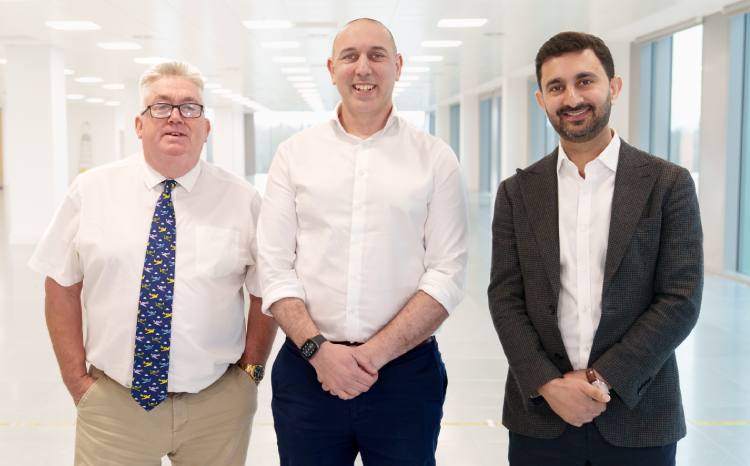Looking to the future
- 12 September 2013

For the past couple of decades, reports on the future of healthcare in the UK have tended to take one of two forms.
Either they have called for a radical shake-up of the acute sector – particularly in London – so fewer hospitals run ‘hotter’ and do more specialist work – supposedly improving efficiency and quality in the process.
Or they have called for new community and primary care centres to be set up to take on some of the less specialist work that is done in hospitals – supposedly saving money and shifting care ‘closer to home’ in the process.
The Royal College of Physicians’ Future Hospital Commission has avoided both, opting instead for a ‘radical new vision’ that neatly sidesteps the specialism issue and tries to focus attention more on how acute general medicine is practiced than where it is practiced.
A diagram in its ‘Future Hospital‘ report, illustrating the services for which a new ‘hospital-based medical division’ might be responsible, shows it bleeding out of medical wards and emergency departments into discharge facilities on the one hand, and specialist community services on the other.
As such, it could be seen as something of a ‘land-grab’ by the physicians, who at a press conference to launch the Future Hospital report, were talking about co-ordinating care for patients across hospitals and community, primary and social care services alike.
A vision, not a plan
However, the scale and the implications of the RCP’s proposals don’t seem to have been grasped yet, probably because they are hard to sum up in the kind of sound-bites that previous reports have made familiar.
Journalists pressed Professor Tim Evans, the academic vice president of the RCP and lead fellow on the commission, on how many hospitals might be reused or closed as a result of his plans.
But they failed to get a ‘doctors call for X number of hospitals to go’ headline. (Professor Evans argued it would be for local healthcare communities to come up with a model of care, and then work out the details).
They also pressed on how much the proposals would cost, but failed to get a ‘doctors plan £Xm hospital shake-up’ story from the panel.
(Sir Michael Rawlins, chair of the commission, said the report was about getting more out of the resources the NHS had, while Professor Evans insisted there were “huge savings” to be generated by, for example, freeing up hospital beds by giving physicians access to step-down facilities seven days a week).
Other organisations seemed similarly baffled. For the British Medical Association, Dr Mark Porter, the chair of BMA Council, said it supported some of the commission’s stated principles, such as putting the patient at the centre of care and ensuring continuity of care.
But he added that the proposals will “need joined up thinking, planning and a commitment of resources to work” and that it was hard to see where these would come from, given that “many parts of the current healthcare system are at capacity, and some areas like emergency medicine are nearing crisis.”
Dr Porter also took the opportunity to point out that the government’s apparent commitment to “market-based healthcare policies” would make the RCP’s ideas difficult to achieve in practice.
In a particularly bland response that ignored this point – and, indeed, the ‘shake up hospitals and extend consultant care into the community’ aspects of the report – heath secretary Jeremy Hunt said “many of the proposals mirror and build on steps we are taking to drive up standards across the NHS, including named clinicians, seven day access to services, and prioritising and measuring patient experience.”
Under pressure
The RCP is certainly aware of the pressures that the NHS is under at the moment. Indeed, it set up the Future Hospital Commission last March because it was concerned that the healthcare system was “ill equipped to cope with the needs of an aging population with increasingly complex clinical, care and support needs.”
This, the report says, has been showing up in A&E departments that have been buckling under increased demand, patients being “forced to move between beds, teams and care settings with little communication or information sharing”, and a “looming crisis” in the medical workforce.
At the launch, Sir Michael said things had, if anything become worse over the 18 months over which the commission did its work, with high-profile care scandals “examples of the pressure that the service is under”, and a looming winter crisis.
As the RCP held its press conference, the Department of Health was announcing emergency funding for 53 hospitals that are predicting their emergency departments could see a 15% increase in demand this year.
In response, the commission, which included representatives of national bodies, regulators, and patients, concluded that a “new principle of care” is needed – that care should come to patients, instead of patients going to care – and that this would require a “new model of care” to make operational.
Specifically, the commission wants hospitals reorganised to create that new medical division, responsible for medical services not just across a hospital, but out into other settings from which patients might be admitted or to which they might be discharged.
(Not that the report talks about discharge; indeed, it says patients should no longer be ‘discharged’ as if a hospital’s responsibility for them ends at some point, and that “planning for their future care needs and transfer to intermediate, community, primary or social care, or their return home, should begin on admission.”)
The RCP proposes that a new ‘acute care hub’ should be set up within hospitals to make sure that patients are assessed and stabilised by a senior member of staff as soon as possible, and that a ‘clinical co-ordination centre’ should be set up to organise their future care.
While they are in hospital, the report says patients should know which consultant is responsible for their care, seven days a week, and that they should remain in the same bed if at all possible, with specialist services coming to them.
All of this will require a new emphasis on generalism, which the RCP believes will prove attractive to doctors, and provide new careers as co-ordinators, chief residents and chiefs of medicine.
Underpinned by technology
It will also require a lot more IT. The report not only acknowledges this, but stresses that the ‘clinical co-ordination centre’ should “hold detailed, real-time information on patients’ care needs and clinical status” and make sure that this is shared among all the staff who need it, via “a single electronic patient record, developed to common standards.”
Indeed, it devotes a whole chapter to IT, that focuses on the importance of standards and coding – the subject of a separate report this summer from the RCP’s Health Informatics Unit – and on how these can be used to make sure that information is recorded once, for clinical purposes, and still fit for other users, including research.
The chapter also discusses the need for new technology to enable patients to access care digitally, view their own records, take part in remote monitoring, and provide feedback. All of which was welcomed by BCS Health.
Its chair, Dr Justin Whatling, said that on the IT front “the report outlines best practice that really ought to be uniformly in place today” and that it would like to see the RCP go further and look at how information and technology could really play a “disruptive role” in “redefining how care services are delivered.”
The commission’s report also argues that IT developments will need to be led by clinicians, and re-endorses the idea of a chief clinical information officer as a “hospital information champion”. Again, Dr Whatling welcomed this, but felt it could go further again.
“The report recommends a clinical co-ordination centre, which BCS Health believes is commendable.
"However, it needs to be coupled with a strong, clinically-led transformation office that can drive continuous performance improvement in the organisation, driven by information and facilitated by technology,” he argued.
Sitting on the shelf
The RCP officially received the commission’s report at its launch, but those sitting in its press conference were keen to stress that the college would be working fast to try and give it traction.
Professor Rawlins was able to hint that one trust, Heart of England NHS Foundation Trust in Birmingham, has already agreed to appoint a chief of medicine. And he told EHI that it would be looking for trusts to pilot other aspects of the ideas, including the IT.
“Different trusts will pilot different aspects of the report and they will develop those in different ways, so we should be able to find out what works and to encourage others to learn from that,” he said.
The college is planning a website and a new journal to spread its ideas; which may start to make other organisations realise just how radical they are.
Whether the re-organisation of acute general medicine that the report envisages will ever be realised, though, is another question, given that vested interests, local opposition and money have done for most of those earlier grand plans, over a shorter or longer period of time.
Professor John Williams from the RCP will be presenting on the Future Hospital Commission at the CCIO Leaders Network Annual Conference, which is co-located with EHI Live 2013 at the NEC in Birmingham from 5-6 November. This year, the show is free for all visitors to attend.




